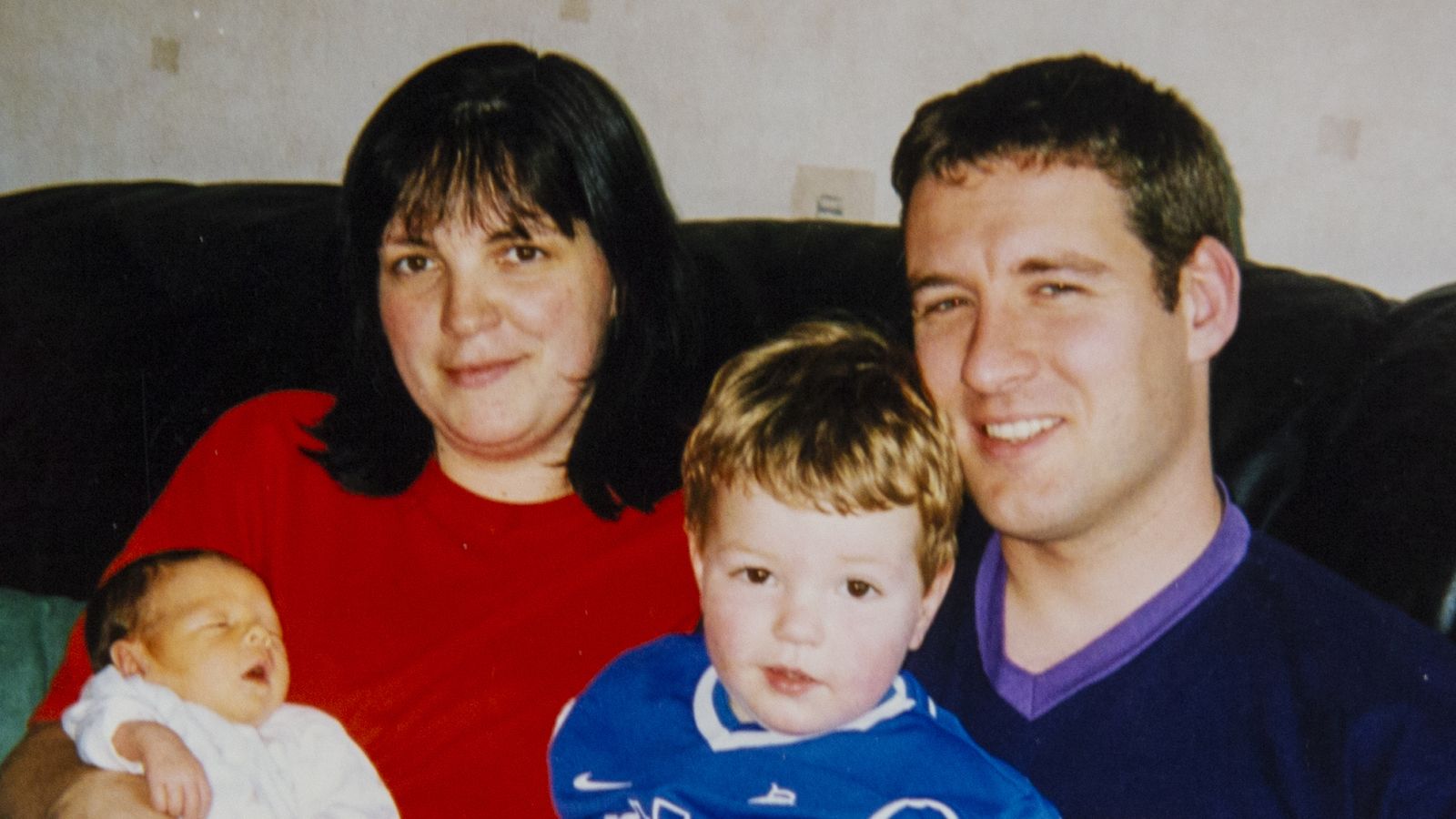The family of a banker who was fatally shot on his doorstep 19 years ago have complained about the handling of the police investigation.
The murder of Alistair Wilson, 30, in the Scottish Highlands remains unsolved.
Police Scotland and the Crown and Procurator Fiscal Service (COPFS) said they had met Mr Wilson’s family to discuss the matters raised by them.
The father-of-two was shot at his home in Crescent Road, Nairn, on 28 November 2004. He died later in hospital.
Mr Wilson was reading bedtime stories to his two young sons after their evening bath when a man knocked on their front door.
When Mr Wilson’s wife Veronica answered, the killer asked for his victim by name.
A blue envelope, which had the name Paul on it, was handed to Mr Wilson on the doorstep.
Edinburgh house explosion: Family pay tribute to blast victim James Findlay Smith, 84
Suspect charged with culpable homicide over death of Andrew Lees in Renfrew
Greenock death: Alexander McQuillan appears in court charged with murder of Michael Beaton
Mr Wilson went inside briefly, but when he returned to the door he was shot.
No one has ever been charged with Mr Wilson’s murder.
In a fresh police appeal in 2020, Mr Wilson’s son Andrew, who was aged four at the time of the shooting, said: “My dad and I missed out on so many things together, showing me how to tie a tie, driving lessons and taking me for my first pint.”
He added: “I still cannot believe how someone could shoot my dad dead on our doorstep while my brother and I were upstairs.
“The only memory of my dad I’m left with is the image of him lying on the doorstep.
“Photographs are all I have and no family should suffer the way we have all these years.”
Last year, Police Scotland said a dispute over decking at the Havelock Hotel – across the road from the Wilsons’ home – was “significant” to the investigation.
Mr Wilson had objected to a retrospective planning application for a large decking area within the car park of the hotel, arguing it was responsible for increased noise and litter in the area.
He filed the objection to the local authority on 25 November 2004, three days before he was killed.
Investigators said the objection was discussed in the hotel bar from Friday 26 November, and over the weekend up until his murder.
A key witness in Canada was interviewed by detectives in regards to the planning application.
Following police appeals, a witness reported seeing two men, one in their 20s and another between 40 and 60-years-old, on Nairn’s East Beach in the weeks before the murder.
The witness said the younger man was in possession of a handgun.
The handgun used in the murder, which was found days later, was a Haenel Suhl pocket pistol from the 1930s.
Police believe the weapon was brought to the UK after the Second World War as a souvenir, but the ammunition used in the murder was said to be from the 1980s or 90s.
Detectives believe the answer to who murdered Mr Wilson lies within his personal life and is not connected to his employment with the Bank of Scotland.
Read more from Sky News:
Man who featured on hit podcast shot dead by police in stand-off
Man charged with murder after 2016 stabbing victim died six years later
Be the first to get Breaking News
Install the Sky News app for free
Police Scotland confirmed it had responded to a complaint from Mr Wilson’s family.
The force spokesperson added: “The investigation into the murder of Alistair Wilson remains ongoing and we are committed to conducting a full and thorough enquiry that will hopefully provide much-needed answers to Alistair’s family.
“We continue to update them on our progress and they have asked that their privacy is respected at this time.”
Anyone with information is being urged to contact the police.
COPFS said the murder was a “terrible crime” and its thoughts remain with Mr Wilson’s family.
The spokesperson added: “COPFS and Police Scotland have met with the family to discuss the matters raised by them in relation to the ongoing investigation.
“We appreciate the importance of this work to the family and they will continue to be informed, where appropriate, of significant developments.”








